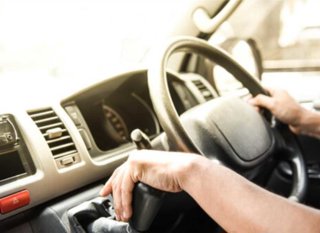Businesses must address gaps in driver training, heavy workloads, and mental health issues caused by the Covid-19 pandemic, say industry experts.
Speaking at Virtual Fleet & Mobility Live, Simon Turner, campaign director at Driving for Better Business, explained that during the past six months essential fleets with “very robust, comprehensive driver induction programmes” have had to resort to “effectively asking the driver to do a lap of the depot, and get on with the job” due to social distancing and sanitisation issues
But he warned that “your duty of care is still there”.
“As soon as restrictions allow, it really is incumbent upon you to reinstate that original comprehensive driver induction training programme,” he said.
“And also to instigate a plan to upskill the drivers who received the lower level of induction in order to get them to the same level as all your other drivers because it really won't be acceptable to have a fleet with effectively two tiers of drivers.”
Nick List, customer success director at edriving, agreed: “Don’t assume because we’re in a Covid situation that you can walk away from your duty of care because it still remains.”
He advised businesses to “think outside the box” and to consider comprehensive online courses as an alternative measure to on-the-road training “to still get that message across”.
Covid-19 has also created workload challenges due to redundancies, staff having to self-isolate or falling ill or companies being exceptionally busy as a result of the growth of online orders.
Businesses need to ensure that a driver’s workload doesn’t encourage them to speed or put them under undue pressure or go against fatigue management policies, Turner said.
“You need to very carefully match the workload that you're asking the drivers to do with their capacity to perform that job safely, and within your normal sort of work practices,” he said.
List added that fleet managers need to “keep an eye on the line manager space” to ensure that they are not putting unnecessary pressure on the drivers to achieve operational metrics.
“Safety is paramount and that shouldn’t be compromised in any way, shape or form,” he said.
Increased workloads or concerns about job security or the health of loved ones due to the pandemic may also impact a driver’s mental health and make it difficult for them to remain focused when driving.
“One of the key things fleets and managers should be doing is bit of sensitive management,” Turner said. “If you see any potential issues, encourage people to talk.”
Be mindful that many drivers are lone workers and may not have spoken to anyone all day, particularly with social distancing, Turner added.
- Driving for Better Business and Highways England have teamed up with the Campaign for Living Miserably (CALM) to provide information packs which can support commercial vehicles drivers with mental health as part the CALM Driver campaign which launched at Virtual Fleet & Mobility Live.
- All of the 24 seminar sessions and six manufacturer interviews from Virtual Fleet & Mobility Live are now available to watch on-demand. If you've already registered, all you need to do is log in to get access to the content. If you haven't registered for the event, sign-up here first and you will receive log-in details for the event platform.





















Login to comment
Comments
No comments have been made yet.